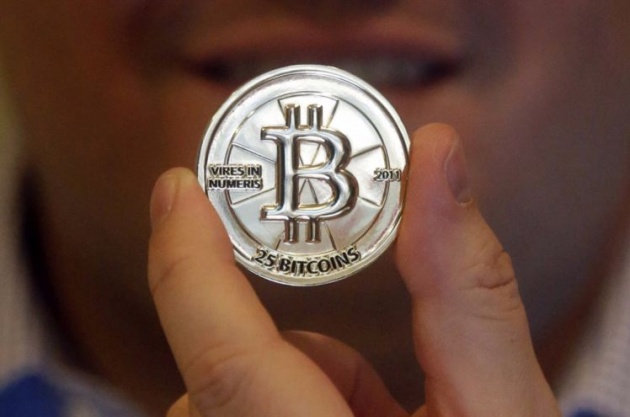What is bitcoin?

Once exclusively the domain of tech-savvy libertarians, virtual currency bitcoin has shot to prominence after a massive rise in value and the financial crisis in Cyprus. We explain what bitcoin is, how it works and whether it represents a glimpse into the future of the world economy.
What is bitcoin?
Bitcoin is a decentralised virtual currency, meaning neither does it exist in the physical world, nor does it have a central bank such as the Federal Reserve or the Bank of England. There are also a finite number of bitcoins in the world, with a limit of 21million bitcoins set to be reached by 2014.
Why all the fuss now?
Bitcoin was introduced in 2009 by a mysterious programmer known only as Satoshi Nakamoto, which is thought to be a pseudonym, and who has never given an interview. Previously the domain of technology-friendly libertarians, bitcoin has shot to mainstream financial attention after its value increased by up to 1,000 per cent since the start of the year.
The rise of bitcoin also coincided with the tipping point of the financial crisis in Cyprus, when it was announced individual savers faced a one-off levy in order for a eurozone bailout to go ahead. In light of governments raiding savings in this way, the prospect of a currency free from government regulation and interference suddenly becomes much more enticing. However, the US Treasury has recently made moves to apply laundering rules to virtual currencies such as bitcoin.
OK I’m interested, how does it work?
The first step is to visit bitcoin.org and download a ‘wallet’ on your computer or mobile. Bitcoin uses peer-to-peer networking and digital signatures where the money supply is automated and given to servers known as ‘bitcoin miners’. Bitcoins, in blocks of 25, are awarded to these miners when their computer generates a 64-digit number from a complex algorithm. It is helpful to think of bitcoin more as a commodity being mined rather than a traditional currency of which central banks can always create more of.
Can I buy bitcoins directly?
Yes, the most popular way is via online exchanges such at Mt GoX, or via bank transfer on websites including Coinbase. Sellers can also be found directly online or even by meeting them in person.
The most important question: What can I buy with bitcoins?
Technically anything, although virtually no mainstream retailers currently accept them. Blogging platform WordPress and WikiLeaks both accept bitcoin, while some sites offer gift vouchers for retailers such as Amazon. There are also websites selling electronic goods that exclusively accept bitcoin. The dark side to bitcoin is how it is accepted on sites such as anonymous marketplace Silk Road, where users can buy illegal drugs such as LSD.
It all sounds a bit too good to be true, what’s the catch?
The big question is whether bitcoin is truly a self-stabilising currency, with all the evidence so far pointing to no, with it having already shown massive fluctuations in price. Two months ago a single bitcoin was worth $20, but on April 10 its value crashed from $266 to $105 before returning to $160 within several hours. Many mainstream economists regard bitcoin as a bubble waiting to pop, with comparisons made with Dutch tulip mania in the 17th century. Exchanges can also be vulnerable to distributed denial of service attacks, which can lower prices.



